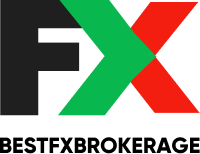Decentralized Autonomous Organizations or (DAOs), are gaining momentum. Delphia has received a $60 million investment from Multicoin Capital.
By providing their personal data to Delphia, traders will be rewarded. Multicoin Capital managing partner Touchear Jain said, “If my data helped predict something about asset prices, it could earn me money in my investment account . And I think that’s extremely powerful.”
Short about DAOs:
DAOs are autonomous systems in blockchain , driven by software code , independent of human error . Participants of the ecosystem have the same rights and can vote for changes in the protocol.
The ecosystem is managed by a program that does not make decisions on its own, but executes instructions from the community.
DAOs are a transparent ecosystem because information about transactions is stored in a blockchain and the user is always aware of what is happening in the network.
Autonomous platforms are based on Ethereum smart contracts, and although there are no voting and governance mechanisms, Ethereum is considered to be the founder of DAO platforms.
Delphia has received support from some of the largest cryptocurrency venture capital funds to create a data-centric DAO. Series A funding is led by venture capital firm Multicoin Capital, and Valor Equity Partners, FJ Labs, Lattice Ventures, FTX Ventures, Ribbit Capital and Cumberland are also participating.
The funds invested will be used to launch a new reward token and to develop ways to put data into algorithms. User-contributed data will be algorithm advisors in Delphia , to improve the trading algorithms that manage the assets.
The minimum amount to access a portfolio of individual stocks is $25, and the user also gets long-term actively managed investment strategies with zero commissions. The platform has a hedge fund for accredited investors that implements a neutral strategy for the market of about 2,500 US stocks.
Benefits of DAO in general :
- Decentralization and transparency, due to open source
- Autonomy, users deal with transactions, smart contracts monitor the fulfillment of the obligations of the parties. If one of the parties fails to comply with the terms of the transaction, the transaction is not executed.
- The time allocated for decision-making, the protocol determines. Decisions are made by the community by voting for the proposals made.
The weaknesses of the DAO as a whole:
- Legal uncertainty, which is reinforced by the fact that once the system is implemented in a private or public organization, there is no way to control it.
- Disputable efficiency of the ecosystem, as a decentralized approach can both help (in global solutions) and harm (in small changes) the system. Experts believe that a hybrid approach would be justified, with proper definition of the powers of those who govern.
- Partial centralization as the ground rules are set in the protocol code by its creators, they can only be changed if the contract foresees changes to the ground rules.
DAO – growing and developing structure, managed to attract the attention of some national governments, DAO supporters believe that the organization contributes to the sustainability of crypto projects in the long term, as users have a stake in their growth.






Latest News